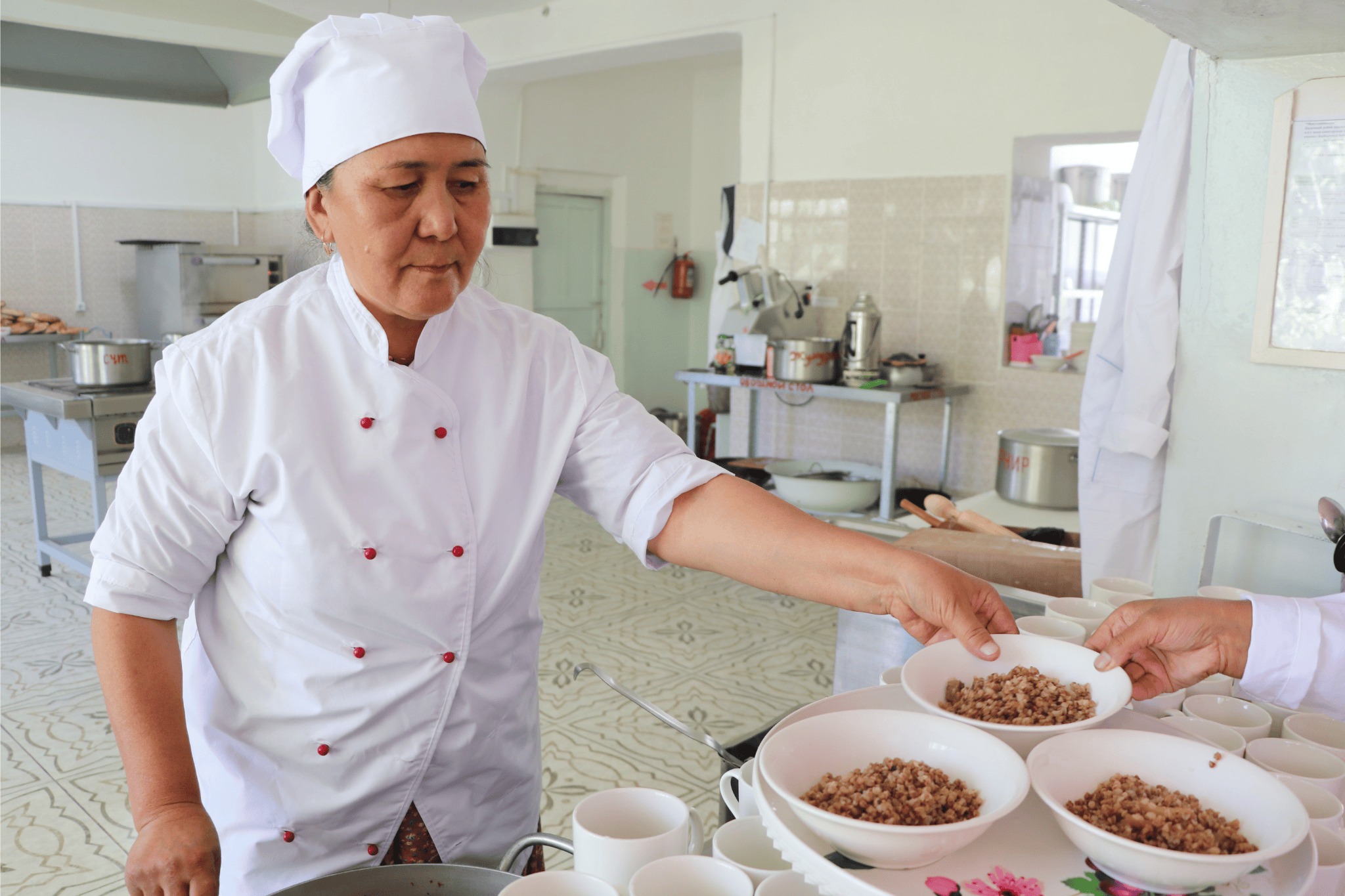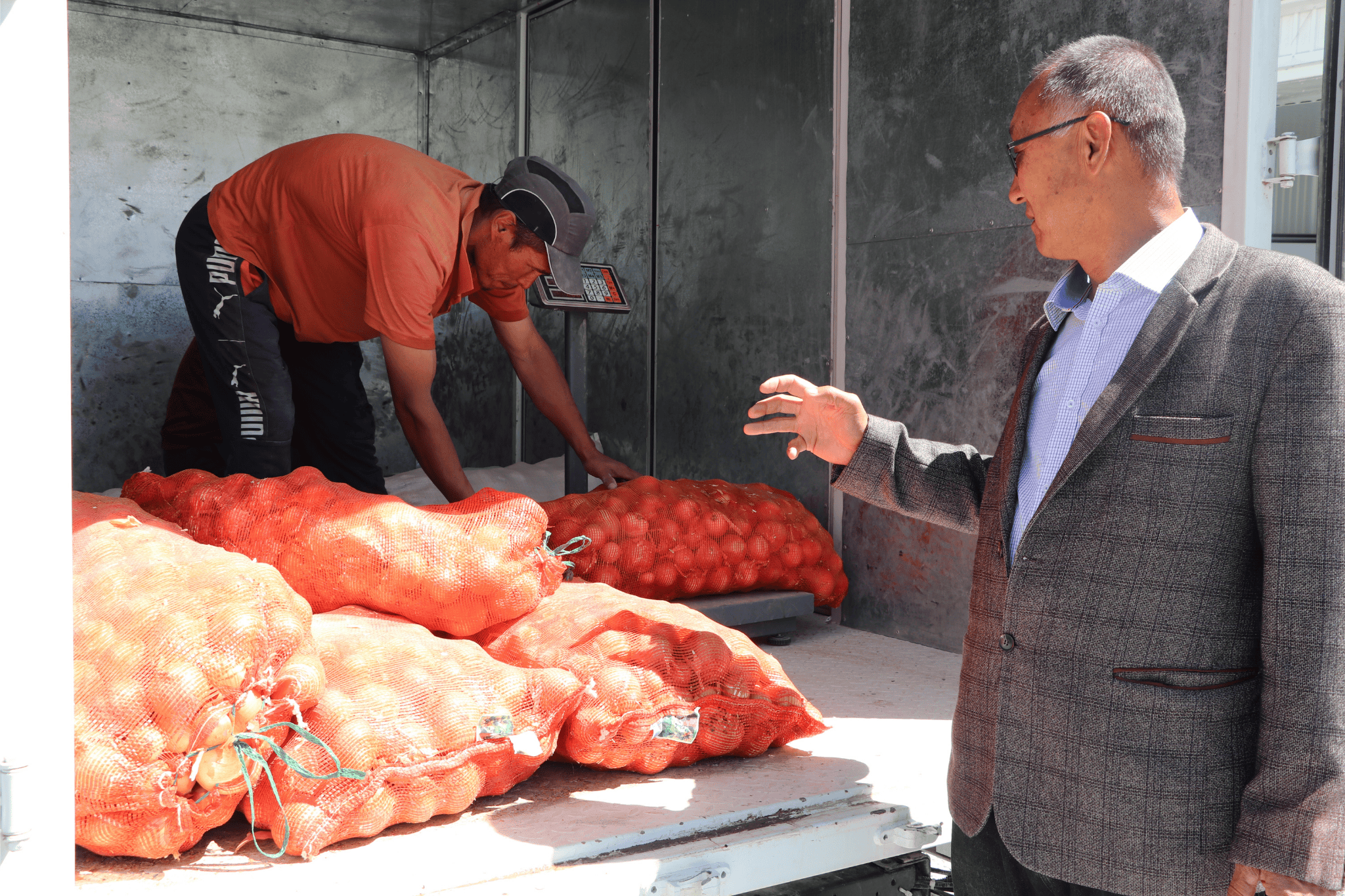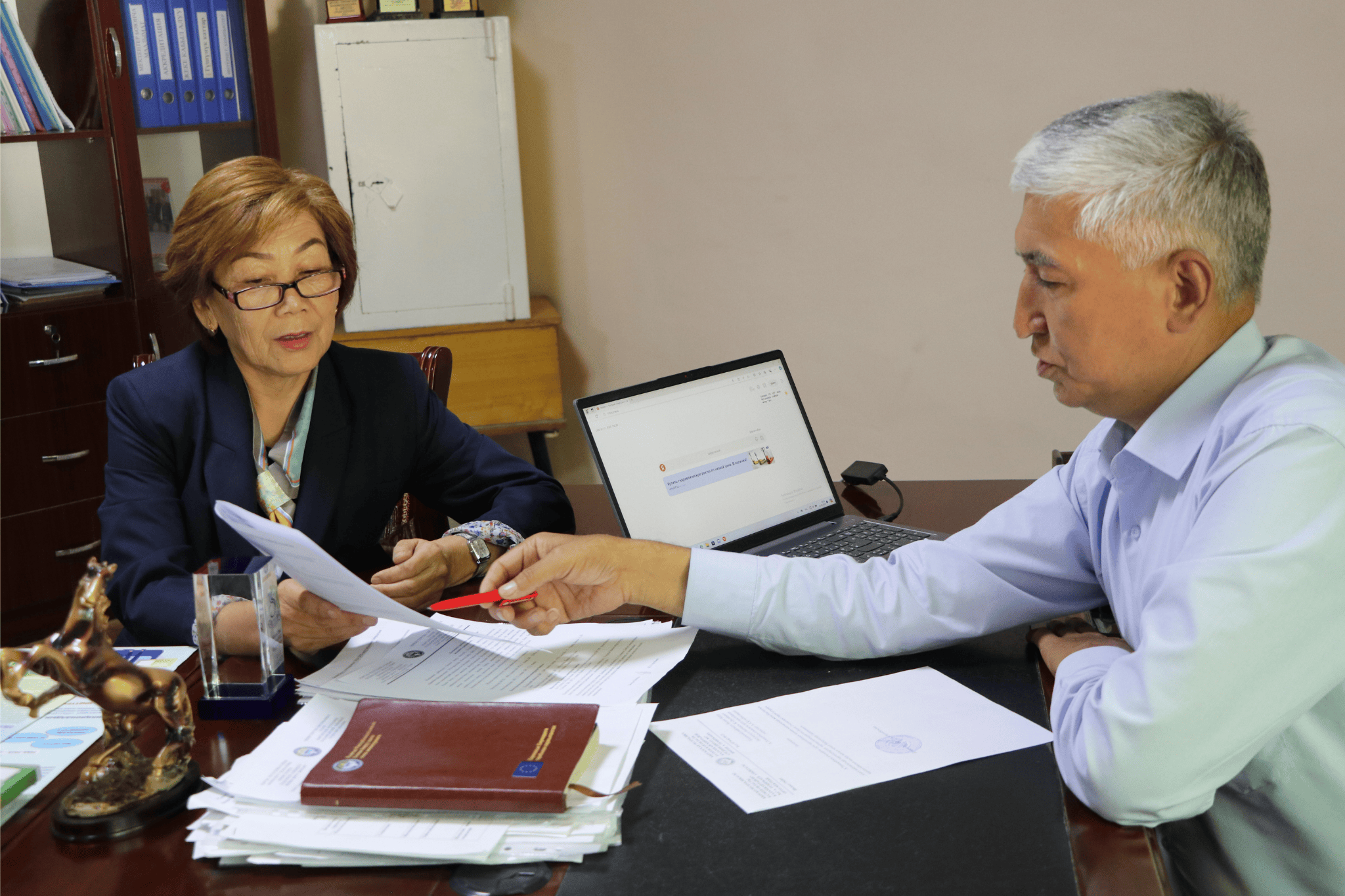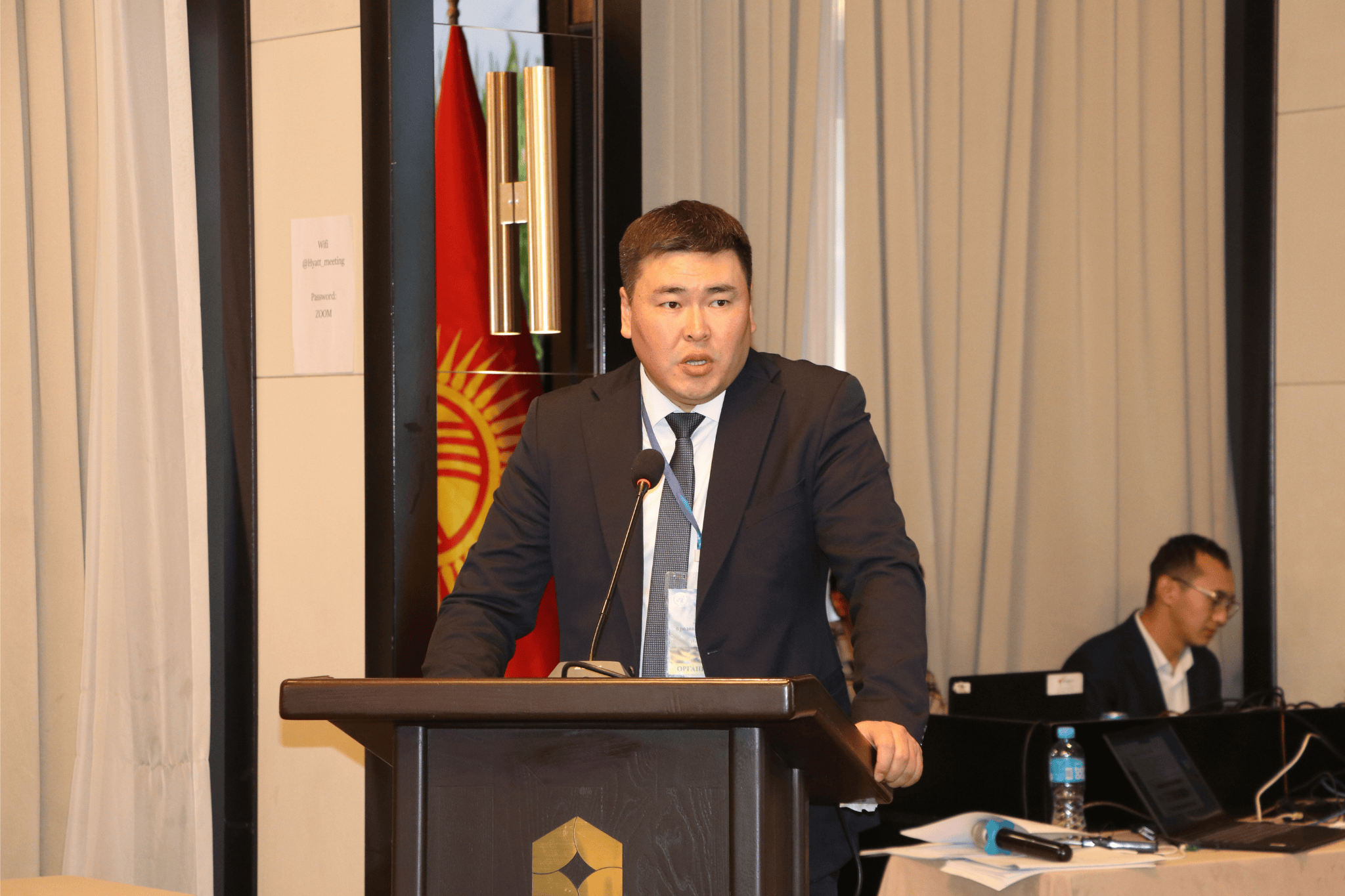From farms to classrooms: How public-private partnerships are transforming food systems in the Kyrgyz Republic
In the Kyrgyz Republic’s Kadamjai district, an innovative public-private partnership is connecting farmers with schools, ensuring fresh, nutritious meals for children while strengthening local agriculture. This approach reflects the focus of the country’s recent Food Systems Dialogue, financed by the Government of Denmark and supported by the UN Food Systems Coordination Hub, where public and private stakeholders united to explore practical solutions to food security challenges and drive sustainable change through initiatives like this.

Article contributed by WFP Kyrgyz Republic.
The beginning of the academic year in September is a busy time for Ysmanaly Parpiev, head of the logistics center which is supplying 56 schools and 40 kindergartens in the Kadamjai district with local vegetables. The logistics centre links schools with local producers in private-public partnership, providing local smallholder farmers with better access to markets through an improved logistics chain and contributing to the sustainable implementation of the National School Meals Programme (NSMP) in the Kyrgyz Republic.

Ysmanaly Parpiev, Head of the logistics center.
The Kyrgyz Republic is a mountainous country in Central Asia that relies on food imports and is greatly affected by climate change, which impacts its agriculture. The lack of logistical and storage infrastructure has often forced local farmers to either lose a significant proportion of their harvest or sell their produce at lower prices. This dependence on imports also drives food prices higher, particularly in winter, impacting the poorest in remote regions like the Kadamjai district.
By converting schools into markets for local farmers, the project aimed to bridge the gap between producers and consumers, thereby addressing the issues of accessibility.
“Previously, farmers struggled to sell their products due to lack of access to stable markets and difficulties in reaching consumers directly. Now, with schools serving as a reliable and consistent sales market, farmers have a reliable outlet to sell their produce. This not only provides them with a steady income but also promotes sustainable farming practices and supports the local economy. At the same time, it ensures that schools receive fresh, high-quality, and locally sourced ingredients to prepare nutritious meals for children,” remarks Ysmanaly.
The logistics center consists of three facilities: vegetable storehouse with an insulated van to deliver produce, processing facility and mobile laboratory to test the quality of products for schools. With the capacity to store up to 220 tons of food for 10 months, a consistent supply of fresh ingredients is assured.
Such logistics centre’s have made the work of school cooks, such as Kurbanova Maria, easier. Three years ago, Sadykov School in the Kadamjai district introduced hot and diverse meals. The school cook reports that the menu has been enhanced with higher-quality ingredients. Thanks to fresh produce supplied by the logistics center, the school now serves hot meals five times a week. The school menu includes delicious soups, fresh salads, main courses, fruit compote drink, and freshly baked buns. This diverse and nutritious menu is made possible not only by the availability of fresh food but also by the valuable knowledge gained from training provided by WFP.
"Before the training, we were unfamiliar with cooking balanced meals," says Maria. "Thanks to WFP’s training, we now use fresh ingredients to prepare healthy and nutritious meals, which has improved the food we serve."
The head of the Kadamjai District Education Department shares the same view as the school cook, noting that the logistics center serves the majority of schools and kindergartens in the district. He adds that the Cabinet of Ministers of the Kyrgyz Republic has issued an order to support local producers. In response, the Department of Education signed an agreement with the logistics center to supply schools and kindergartens with potatoes, carrots, and onions. Moreover, in some remote and mountainous areas of Kadamjai district, vegetables can be more expensive; however, the logistics center offers food at lower prices all year round. As a result, school children are ensured access to safe, fresh, locally produced, and high-quality food.

Jenish Orozbaev, Head of the Kadamjai District Education department.
For the Kyrgyz Republic, a country heavily reliant on food imports to meet domestic needs, ensuring food accessibility is a pressing challenge. This highlights the urgent need to strengthen food systems. Despite the rich agricultural history, the country faces persistent obstacles in delivering fresh and nutritious food to all segments of the population at an affordable price. To overcome these challenges, the Government is exploring new approaches and integrating modern technologies into its food systems.
The recent Food Systems Dialogue, supported through the UN Food Systems Coordination Hub and financed by the Government of Denmark, has brought together key stakeholders from both the public and private sector. This inclusive platform facilitated discussions on challenges and priorities, emphasizing the transformation of food systems as a national agenda. The dialogue aimed to refine and implement the strategic vision outlined in the National Food Security and Nutrition Programme, paving the way for a sustainable and resilient food system by 2030.

Samat Nasirdinov, Deputy Minister of Water Resources, Agriculture and Processing Industry, and National Convenor of the Kyrgyz Republic.
“Food security is not just a matter of food quality, it is the foundation of a nation's health, its economic stability and a sustainable future. In the face of a changing climate, economic and political challenges, Kyrgyz Republic’s agriculture and food systems face significant hurdles. I am confident that today's discussion will inspire new ideas, allow us to share experiences and lead to concrete steps to improve food systems in the Kyrgyz Republic. It is vital that our solutions not only ensure food security, but also take into account long-term sustainable development goals”, said Samat Nasirdinov, Deputy Minister of Water Resources, Agriculture and Processing Industry, and National Convenor of the Kyrgyz Republic.
The dialogue highlighted the critical need to tackle challenges across the entire supply chain—from production and processing to transportation, storage, and sales. Stakeholders, which included business owners such as Ysmanaly Parpiev, who work directly with smallholder farmers, discussed the shared responsibilities of the Government and the private sector in creating sustainable food systems.
Initiatives stemming from the dialogue demonstrate the potential of public-private partnerships to drive meaningful change. By ensuring that local communities have access to safe, high-quality food, these efforts promote sustainable growth and resilience in the food sector.
